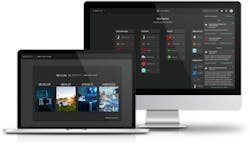Automotive Software Framework Speeds Connected-Vehicle Development
Not surprisingly, numerous electronic subsystems in an automobile are shifting toward what’s known as “edge computing,” which has become essential in IT. Now that shift is picking up speed into the transportation sector.
By eliminating the need to send information to and from remote data centers, edge computing reduces time lags in data processing. In particular, milliseconds are critical in things such as autonomous vehicles, which need to react instantaneously to data they’re receiving. Edge computing also is valuable for applications such as over-the-air software updates, which are becoming increasingly common in cars of all kinds.
Software Partnership
To that end, Wind River Systems announced that Hyundai Mobis and Hyundai AutoEver have signed an agreement to establish a strategic relationship that includes collaboration with Wind River Studio for the development of an automotive software framework. The partnership also includes development of continuous test and test automation capabilities, plus software lifecycle management.
Hyundai Mobis, headquartered in Seoul, Korea is the no.7 global automotive supplier, with annual sales of nearly $30 billion USD. The company has expertise in sensors, sensor fusion in ECUs, and software development for safety control. Its products also include various components for electrification, brakes, chassis and suspension, steering, airbags, lighting, and other automotive electronics.
“Hyundai Mobis plans to continue to introduce new services by adding future mobility technology to intelligent vehicles through extensive cooperation,” said Chang Jae-ho, senior vice president at Hyundai Mobis.
Hyundai AutoEver is a mobility software provider that supports software and infrastructure across in-car and out-of-car areas. It’s building a mobility software platform to flexibly connect hardware and software for the upcoming mobility ecosystem.
“Hyundai AutoEver plays the role of software specialist in the Hyundai Motor Group and is leading the team towards digital transformation to revolutionize software development and verification processes throughout vehicle development,” said Kim Seong-woon, vice president, and head of the Software Quality Innovation Division at Hyundai AutoEver.
He adds, “Through close cooperation with Wind River, we will strengthen the function and efficiency of Hyundai AutoEver’s software integrated-development-environment platform and virtual verification platform to contribute to innovation in vehicle software development by Hyundai Mobis and group companies.”
Cloud-Based Platform
Wind River’s Studio provides a cloud-native platform for the development, deployment, operations, and servicing of mission-critical intelligent systems. Studio enables the sharing of target hardware through a cloud-based interface and provides simulation and emulation capabilities for many hardware development boards supported by VxWorks and Wind River Linux.
“As we move toward a more connected and autonomous future, software is at the center of enabling that reality,” said Avijit Sinha, chief product officer, Wind River. “Wind River Studio can help automotive leaders such as Hyundai Mobis and Hyundai AutoEver achieve a modernized development framework across cloud and edge, combined with software lifecycle management capability to enable them to accelerate their innovation and advance the software-defined vehicle.”
Studio enables users to model applications and services as well as automate their entire lifecycle, including deployment on any cloud or data-center environment, monitoring all aspects of a deployed application, detecting issues and failures, manually or automatically remediating such issues, and performing ongoing maintenance tasks.
Additional Studio features include:
- Combining tools in an automated and customizable pipeline to streamline the build, test, and deployment of software.
- Building RTOS VxWorks images faster and more efficiently by automating the build of a system.
- Accelerating development and delivery of automotive systems, including test capabilities and test automation in both simulated and real hardware-based environments.
- Leveraging the power of the cloud to help platform developers build Wind River Linux images. A complex Linux project can be created and made ready for application development.
- Enabling geographically dispersed teams to access and share physical hardware test targets from any location, at any time.
- Accessing physical hardware via the cloud for software development and testing,
- Allowing users to load existing projects or create new ones using VxWorks and Wind River Linux operating systems. Providing a cloud-based artifact manager that helps users catalog and access all project assets.
- Creating digital twins of complex systems and speeding software development using cloud-scale simulation to test deployment scenarios and use cases. Wind River notes it has integrated, configured, and deployed more than 50 widely used DevOps tools into one platform.
- Accessing a broad catalog of processor architectures and board support packages (BSPs). Users can add their own BSPs or use Wind River BSPs.
Enter Aptiv
Auto technology company Aptiv is paying $4.3 billion to the private equity arm of asset management investment firm TPG Capital for Wind River. “The automotive industry is undergoing its largest transformation in over a century, as connected, software-defined vehicles increasingly become critical elements of the broader intelligent ecosystem,” said Kevin Clark, president and chief executive officer of Aptiv.
“Fully capitalizing on this opportunity requires comprehensive solutions that enable software to be developed faster, deployed seamlessly, and optimized throughout the vehicle lifecycle by leveraging data-driven insights,” continued Clark. “These same needs are driving the growth of the intelligent edge across multiple end markets. With Aptiv and Wind River’s synergistic technologies and decades of experience delivering safety-critical systems, we will accelerate this journey to a software-defined future of the automotive industry.”
Aptiv will finance the transaction through a combination of cash and debt. The deal is expected to close by the middle of the year.

